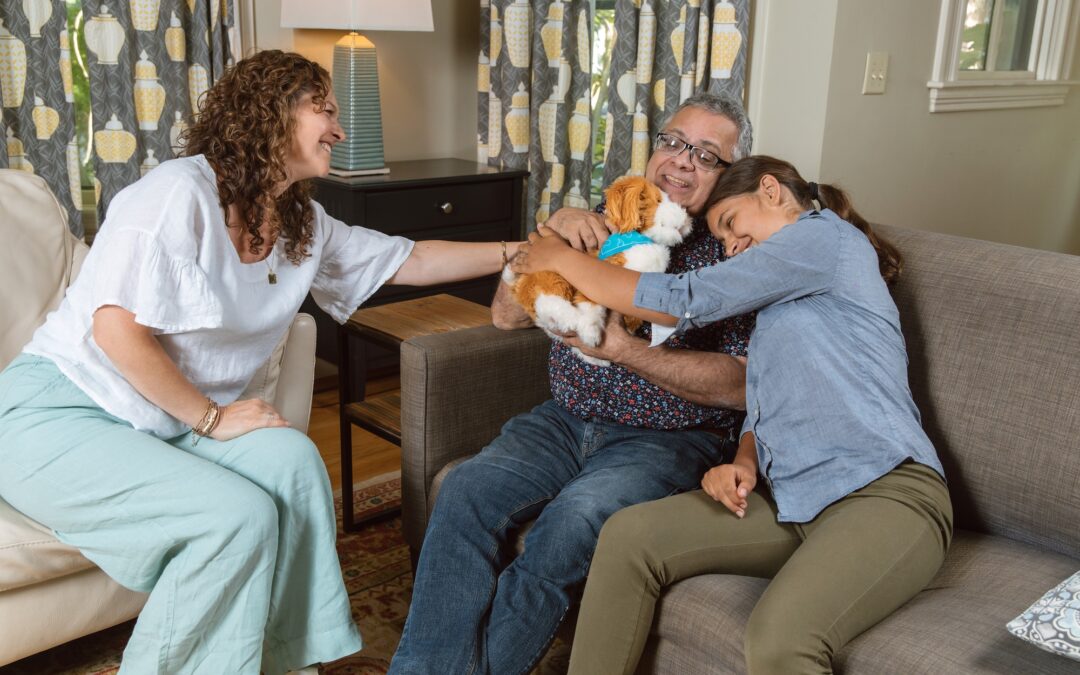
May 4, 2022 | Announcements
Ageless Innovation LLC, a global company devoted to reimagining how we positively live and age together through the power of play, today announced the expansion of its award-winning Joy for All product line to include a unique collection of card-based games. With the goal of delivering continued joy and fun to older adults and their loved ones of all ages, the new games will encourage enjoyable social interactions powered by the proven benefits of reminiscence therapy.

Mar 9, 2022 | Research
Categories
- Reduce Social Isolation
- Reduce Feelings of Loneliness
- Reduce Use of Antipsychotics and other Medications
- Increased Quality of Life
- Others: Decreased Agitation; Increased Cooperation with Activities of Daily Living
Organization Name
Alacare Home Health and Hospice
Organization Type
Home Health and Hospice
Organization Description
Alacare is Alabama’s oldest and largest family-owned home health care
agency. Since 1970, Alacare has provided patients with quality home
healthcare including hospice/palliative care and rehabilitation services.
Project Description
Alacare has long recognized the value of pet assisted visits and therapies
with home bound patients, but the liability risks for incorporating live pets
into our patient-centered care provisions has stifled the prospects for the
inclusion of 4-legged volunteers into our programs.
Providentially, John Beard, President of Alacare Home Health and Hospice,
discovered the animated, robotic Joy For All Companion Pets. Under his
guidance and leadership, Alacare developed and completed a Companion
Pet Pilot Study in 2018. Hospice patients experiencing anxiety due to
advancing dementia and other patients perceived at risk for social isolation
were considered for participation in the study.
Read the study

Nov 1, 2021 | Research
Abstract
Background
Globally, pressure is increasing on health and social care resources due to the aging population and growing prevalence of dementia. Companion robots, such as Paro, demonstrate strong potential for helping reduce this pressure through reported benefits including reduced agitation, depression, loneliness, care provider burden, and medication use.
However, we previously identified that user-centered design of robot pets is both essential and understudied. We observed that commonly used robot pets are poorly matched to end-user requirements, and that end users and developers of robot pets differ significantly in their perception of appropriate design. This may explain some of the contradictory outcome research and variance in results for robot pets, such as Paro.
Objective
In response to the literature gap, we aimed to provide user-centered insights into the design of robot pets from key stakeholders to inform future robot development and the choice of robots for real-world implementation and research. We focused on understanding user requirements.
Methods
We conducted a qualitative study with 65 participants from 5 care homes (26 care home residents, 29 staff members. and 10 family members). Care home residents formed groups of between 3 and 4 individuals and experienced free interactions with a range of 8 companion robots and toys, including Paro and more affordable alternatives.
The robots provided had a range of esthetics, shell types, interactivity levels, and designs for comparison. Care staff and family members observed the interactions. All participants then engaged in focus groups within their stakeholder category to discuss preferences and user requirements in companion robot design. Both free interactions and focus groups were video and audio recorded, transcribed, and subjected to thematic analysis.
Results
Care home residents, family members, and staff were open and accepting of the use of companion robot pets, with the majority suggesting that they would keep a device for themselves or the residents.
The most preferred device was the Joy for All cat, followed by the Joy for All dog. In discussions, the preferred design features included familiar animal embodiment (domestic pet), soft fur, interactivity, big appealing eyes, simulated breathing, and movements. Unfamiliar devices were more often seen as toy-like and suitable for children, producing some negative responses.
Conclusions
This work provides important and user-centered insights into future robot designs for care home residents by means of a comprehensive comparison with key stakeholders. This work strongly supports the use of familiar embodiment in future robot pet designs, with domestic cat and dog morphologies appearing most acceptable. The results have implications for future robot designs and the selection of robot pets for both research and real-world implementations.
Read the study





